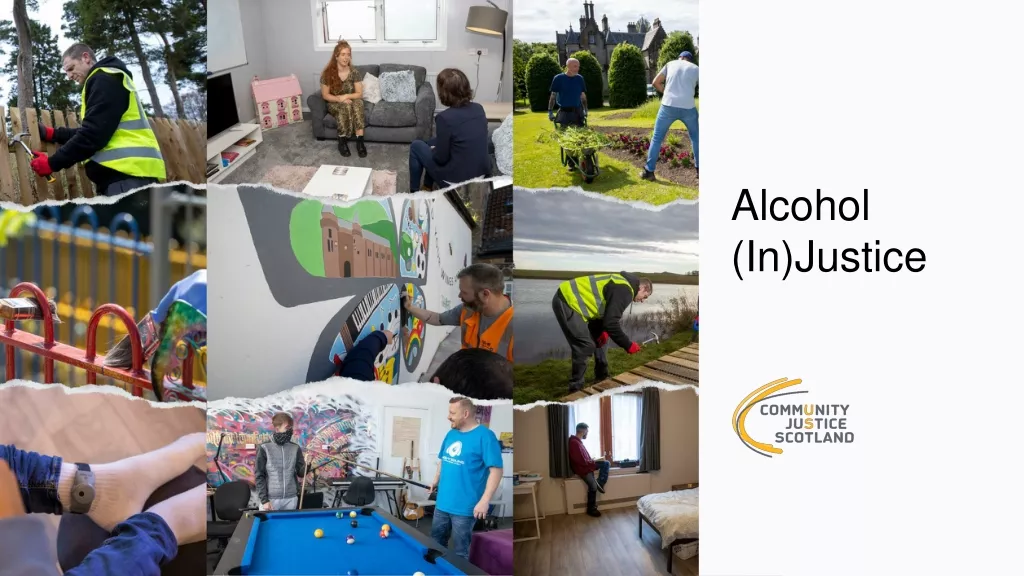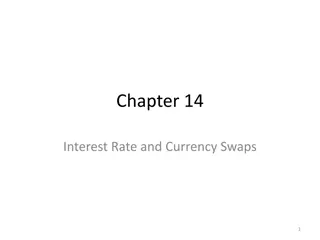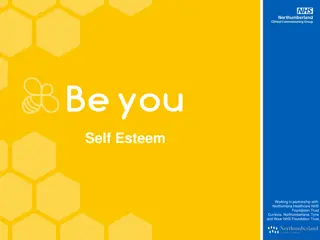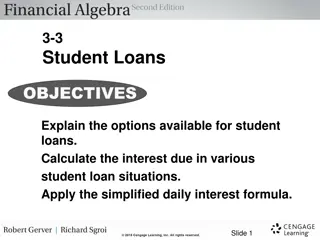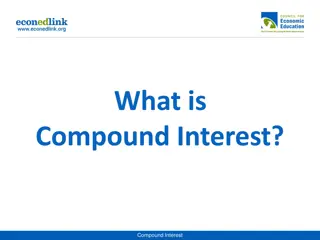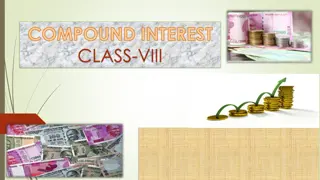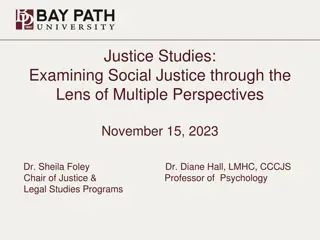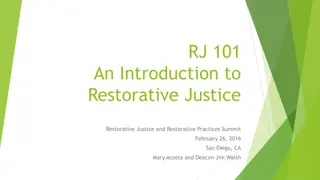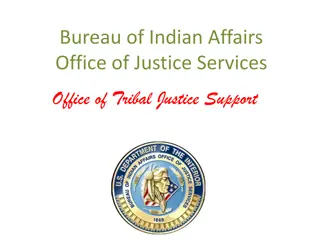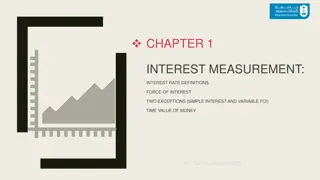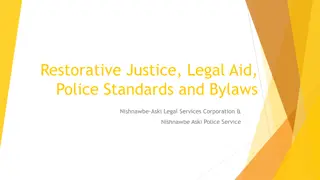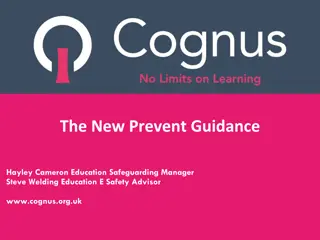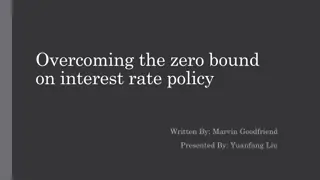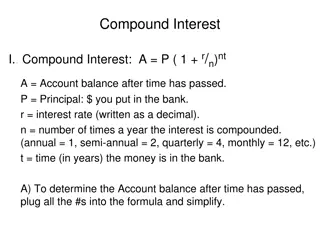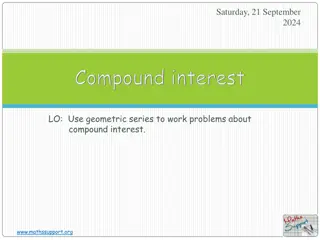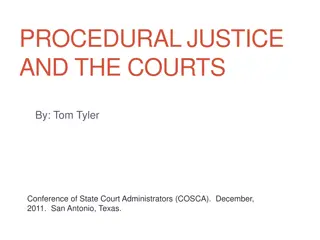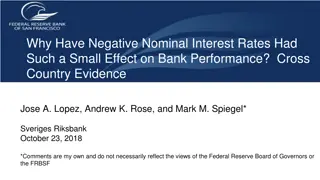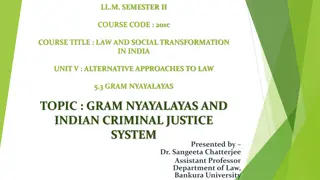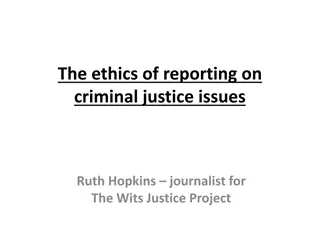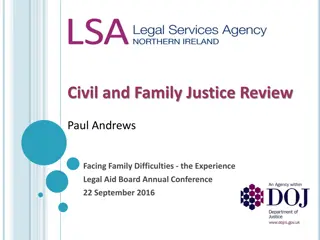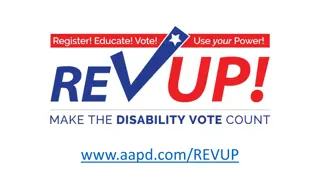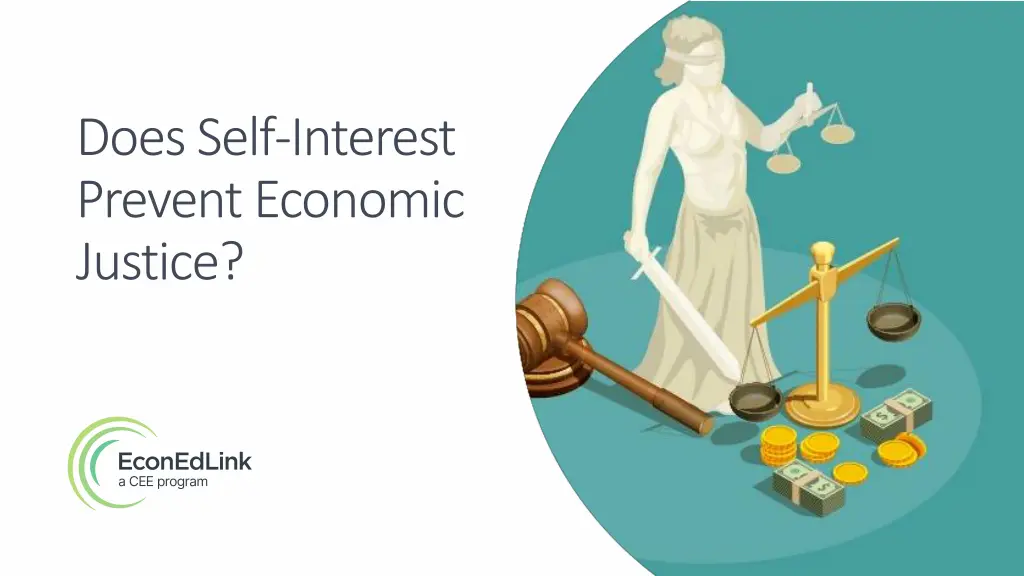
Understanding Economic Justice Through Self-Interest, Equity, and Scarcity
Explore the relationship between self-interest, economic justice, and scarcity in this thought-provoking discussion. Delve into the concepts of equity, justice, and the role of self-interest in shaping societal structures and outcomes.
Download Presentation

Please find below an Image/Link to download the presentation.
The content on the website is provided AS IS for your information and personal use only. It may not be sold, licensed, or shared on other websites without obtaining consent from the author. If you encounter any issues during the download, it is possible that the publisher has removed the file from their server.
You are allowed to download the files provided on this website for personal or commercial use, subject to the condition that they are used lawfully. All files are the property of their respective owners.
The content on the website is provided AS IS for your information and personal use only. It may not be sold, licensed, or shared on other websites without obtaining consent from the author.
E N D
Presentation Transcript
Does Self-Interest Prevent Economic Justice?
Equity and Justice In recent years, economics has focused on economic efficiency, yet economic justice is also an important value to individuals and societies. 2
Scarcity Because of scarcity, the economic condition of not having enough resources to satisfy everyone s wants, not all wants can be satisfied and people differ greatly in their abilities and opportunities to satisfy their wants. Do you think that scarcity creates economic inequality? 3
Equity and Justice One definition of justice is the notion that everyone deserves equal economic, political, and social opportunities regardless of race, gender, or religion, for example. To determine if something is just, people often ask two different-and possibly contradictory- questions: 4
Equity and Justice 1) Is the OUTCOME equitable? People who emphasize outcomes tend to see the existing degree of economic inequity as morally wrong. 2) Is the PROCESS equitable? People who emphasize process are more likely to approve the results of a system, even if those results are highly unequal, provided individuals have equal opportunity to succeed. If they believe the system is designed to be equal for all, they believe the outcomes should be just. 5
Outcome-based and Process-based Examples Process based: If someone is focused on process, would it be just that some students in this class got As while others got Bs, Cs, Ds, or Fs? What if they focused on outcomes? Outcome based: If someone is focused on outcomes, would it be just for everyone to get a high school diploma regardless of what they did during their time in school? What if they focused on process? 6
Equity and Justice People s experience and self-interest sometimes play a role in how they may answer these questions. According to philosopher John Rawls, all people are biased by their situations. In order to avoid our biases we should imagine sitting behind a veil of ignorance that keeps us from knowing how we believe and identifying with our personal circumstances. By being ignorant or blind to our own circumstances, we can more objectively consider how society should operate. Veil of Ignorance. Ethics Unwrapped, 21 Feb. 2022, https://ethicsunwrapped.utexas.edu/glossary/veil-of- ignorance. 7
Equity and Justice The Trolley Problem | The Good Place | Comedy Bites Michael tries a more concrete approach to solve the trolley problem. The Good Place 'Chapter 19' Season 2, Episode 6 'The Trolley Problem' - Chidi and Eleanor tackle a famous ethical dilemma, leading to a conflict with Michael; Tahani confides in Janet. Welcome to the OFFICIAL Comedy Hub Channel. With all of your favourite moments and characters from some of the worlds best comedy, including The Office US, Parks Recreation, 30 Rock, Brooklyn Nine Nine and many many more. Subscribe here - youtube.com/channel/UCGfUuxBzB8E30XjCjOvji2w?sub_confirmation=1 Check out the official Peacock YouTube Channel: https://www.youtube.com/c/peacocktv The Office U.S.: https://www.youtube.com/c/TheOfficeUS Parks and Recreation: https://www.youtube.com/c/ParksandRecreation Brooklyn Nine-Nine: https://www.youtube.com/c/BrooklynNineNineOfficial Watch full episodes of Brooklyn Nine-Nine here: https://www.justwatch.com/us/tv-show/brooklyn-nine-nine ITunes: http://apple.co/2gsqIjI Watch full episodes of Parks and Recreation here: https://www.uphe.com/tv/parks-and-recreation-the-complete-series Watch full episodes of 30 Rock here: https://www.justwatch.com/us/tv-show/30-rock Watch full episodes of The Office US here: https://www.uphe.com/tv/the-office-the-complete-series Watch full episodes of The Good Place here: https://www.justwatch.com/us/tv-show/the-good-place Subscribe here - youtube.com/channel/UCGfUuxBzB8E30XjCjOvji2w?sub_confirmation=1 #TheGoodPlace #nbc 8
Veil of ignorance example Decision-making under the veil of ignorance What if a car were speeding down the highway towards a group of five people who are completely oblivious of the car. You could save all five people if you pushed a 6th person in the way of the car. Would you do it? 9
Veil of ignorance example Now, let s remove the veil of ignorance. Would you push the 6th person in front of the car if someone you loved were one of the five people who might get hit? Would you push the 6th person in front of the car to save the other five people if someone you loved were the 6th person who would be pushed? 10
Veil of Ignorance Simulation Directions: This role-playing simulation will help you understand an important principle of justice. We need to divide into groups of 3-4. Each group will receive an Economic Policy Ballot. Members will read, discuss, and vote on each policy as a group. Voting in Round 1 will be done under the veil of ignorance. Groups will not know if each policy will benefit them or not. We will share out how each group voted in 5-10 minutes. 11
Veil of Ignorance Simulation: Round 2 Directions: In Round 2 we will remove the veil of ignorance and see how self-interest impacts decision-making. Round 2: Each group will receive a Role Card. Each group needs to vote on each policy. Groups will read, discuss, and vote on each policy based on how they think the person on their Role Card would vote. We will share out how each group voted in 5-10 minutes. 12
Wrap-up 1. 1. How many groups changed their votes from How many groups changed their votes from Round 1 to Round 2 on: Round 1 to Round 2 on: a. a. Funding education Funding education b. b. Unemployment insurance Unemployment insurance c. c. Migrant workers Migrant workers d. d. Health insurance Health insurance 2. 2. If your group changed their vote, what If your group changed their vote, what influenced the group s decision? influenced the group s decision? 3. 3. Did any group consider how your role would Did any group consider how your role would view the equity of the outcome or the process view the equity of the outcome or the process for each policy before the group voted? for each policy before the group voted? 13
Key takeaways: 1) 1) The veil of ignorance provides an opportunity The veil of ignorance provides an opportunity to identify how our own self to identify how our own self- -interest and circumstances can impact our decision circumstances can impact our decision- - making. making. interest and 2) 2) By recognizing how our decision By recognizing how our decision- -making is influenced, we can attempt to make more influenced, we can attempt to make more just decisions both through government just decisions both through government policies as well as in our own life. policies as well as in our own life. making is 14

